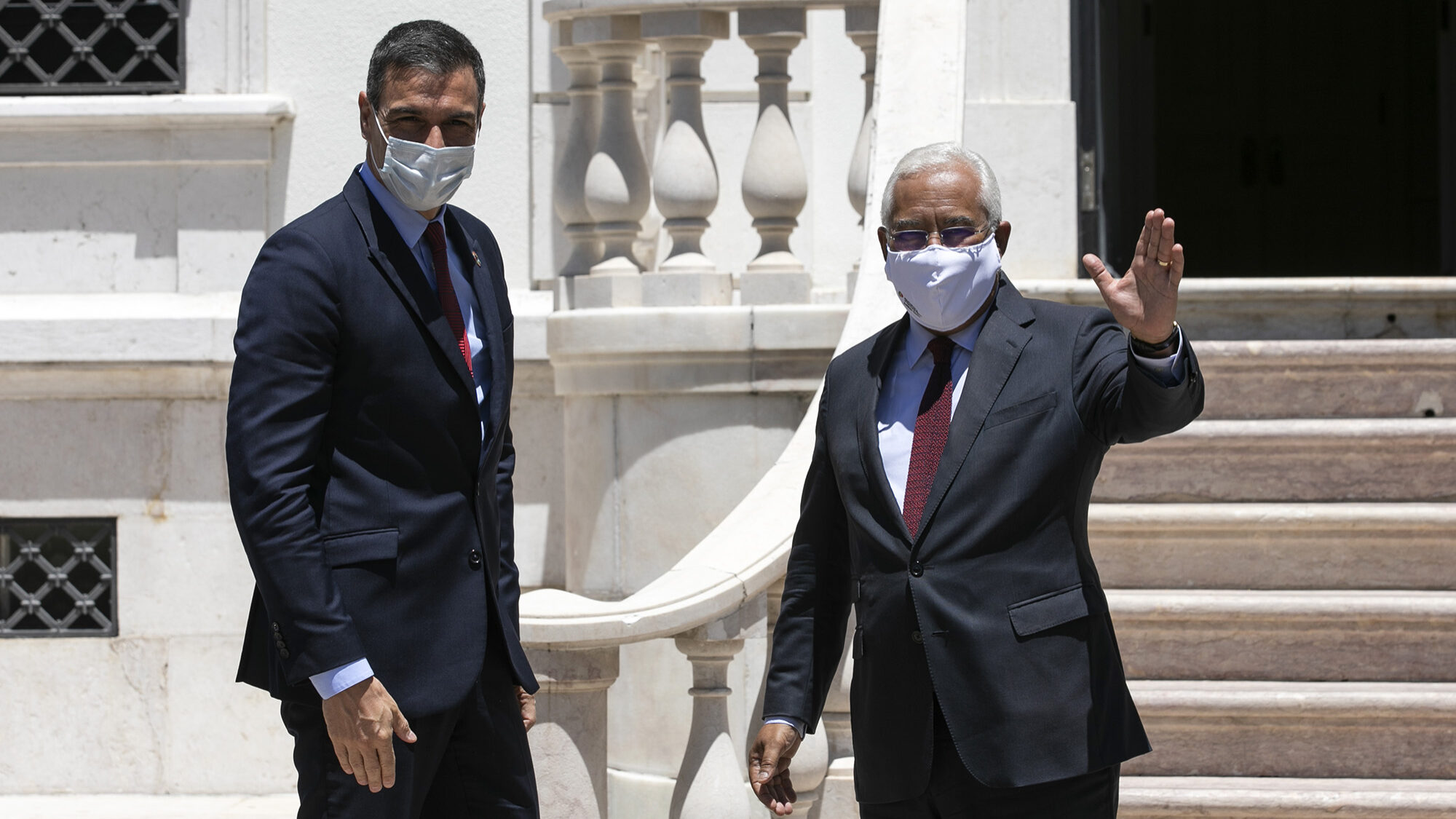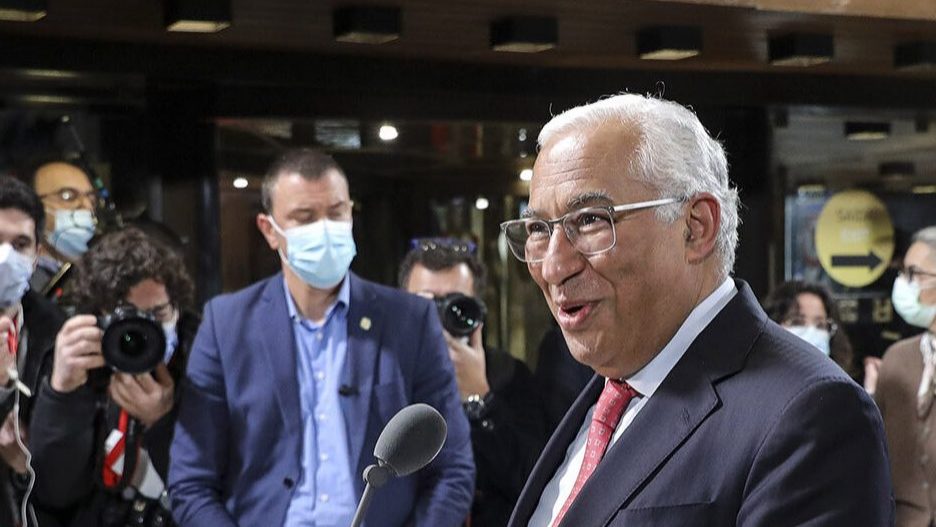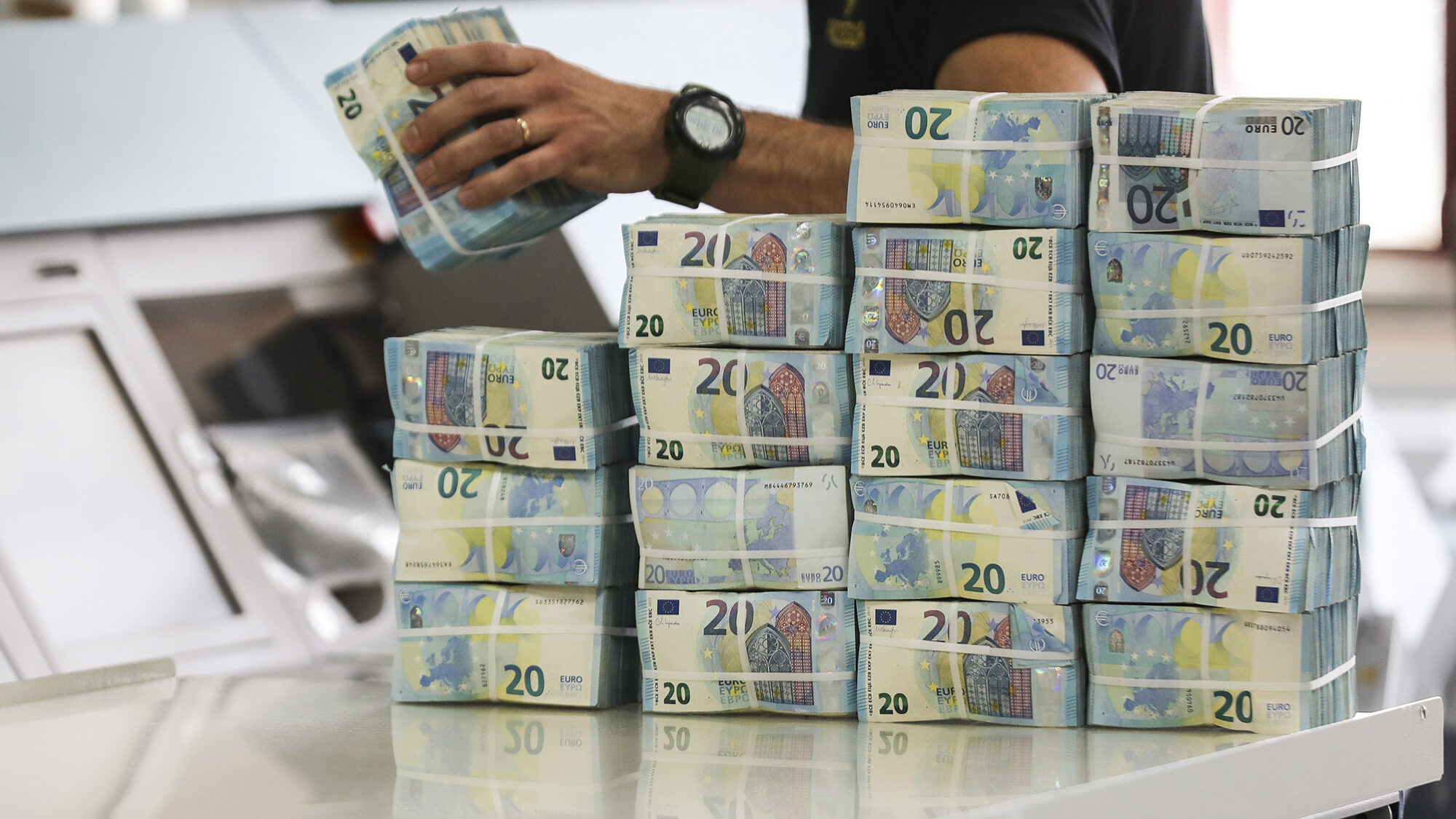PM confident in EU finance for new gas interconnection system
António Costa is confident in the negotiations of Portugal, Spain and France with the European Commission to finance the new energy interconnection system.
Portugal’s prime minister on Monday expressed confidence in the negotiations of Portugal, Spain and France with the European Commission to finance the energy interconnection system, arguing that it is a project of common European interest.
António Costa took this perspective before journalists, after having participated in a conference at ISCTE on digital skills.
Asked about existing doubts regarding the financing of the new interconnection system agreed between Portugal, Spain and France last Thursday in Brussels, the government leader said that “technical studies will now be carried out to enable the project to be budgeted for.
“The three countries will negotiate with the European Commission what the source of funding will be. The three countries understand that this project is of common interest and the best demonstration of this is that even countries such as Germany want it to come to fruition, as well as Eastern Europe,” he said.
In this sense, António Costa said he hoped that “there will be another reclassification of this interconnection system as being of common interest, thus being able to be financed by the European interconnection facility”.
“If not, there are other alternative European funds, such as RePower and the European Recovery and Resilience Programme. There are multiple ways to ensure funding”, he pointed out.
In the case of Portugal, according to the leader of the executive, the section will be around 162 kilometres long, with an estimated cost by REN (the country’s electricity and gas infrastructure manager) of around 300 million euros.
“That is what we are preparing to execute. But, obviously, we are not indifferent to the negotiations that Spain and France may do. For Portugal, in this matter, just reaching Spain is an enormous advantage, because we will be serving and supplying a market of 60 million people and not just 10 million,” he said.
When Spain reaches France in turn, then, according to the prime minister, “Portugal’s capacity also grows”.
“Naturally, we are interested in this negotiation of Spain and France with the European Commission, having the necessary funding to make it happen,” he added.
Before this, the prime minister expressed perplexity at the PSD (social democrat opposition party’s) criticism of the agreement between Portugal, Spain and France for European energy interconnections and accused the social democrat leader Paulo Rangel of not understanding anything about the issue.
“I am absolutely perplexed by what I have heard throughout this weekend by the PSD and by other people who had an obligation to be minimally informed about this agreement. The PSD does not exactly surprise me, because 15 years ago it was against renewable energies and five years ago it was against green hydrogen, so it is natural that it is against the existence of a green corridor for energy,” said the leader of the executive.
In front of journalists, António Costa rejected the thesis that Portugal would be damaged by this agreement, especially because, allegedly, electric interconnections have been abandoned.
“On the contrary, France has the will to increase them. And, last year, between France and Spain, an agreement had already been signed to move forward with the two electricity interconnections,” he said.
According to the prime minister, it was not the issue of electricity interconnections that was blocking an agreement between Portugal and Spain with France.
“What was blocking the interconnections is what has to do with the gas pipeline. In Brussels, on Thursday, what was unaddressed was dealt with,” he pointed out.
When confronted with the criticism of PSD vice-president Paulo Rangel, António Costa considered that the social-democrat MEP “is used to being a person who doesn’t think twice when it comes to saying I don’t care what just to attack his opponent”.
“He doesn’t know anything about energy, he totally ignores everything that has to do with this agreement and, over the years, if one goes back over what he has said about anything and everything, one will see that Paulo Rangel’s disapproval rating is very high,” he said.
According to the Portuguese government, the agreement allows the old project, the so-called MidCat, to be definitively surpassed and a new project to be developed, called the Green Energy Corridor, which will complement the interconnections between Portugal and Spain, between Celorico da Beira and Zamora, and also make a connection between Spain and the rest of Europe, linking Barcelona and Marseille, by sea”.
In question, according to António Costa, is “a pipeline for ‘green’ hydrogen or other renewable gases and which, on a transitional basis, may be used to transport natural gas up to a certain proportion”.
Energy interconnections between the Iberian Peninsula and the rest of Europe have been the subject of debate since 2009, under former socialist prime minister José Sócrates, then with the strengthening between Portugal and Spain, and – in 2015 – the then president of the European Commission, José Manuel Durão Barroso, advocated their implementation in order to reduce energy dependence on Russia.
In March 2015, Barroso’s successor at the head of the European executive Jean-Claude Juncker, met in Madrid with former French president François Hollande, former Spanish prime minister Mariano Rajoy, and the then head of the Portuguese government Pedro Passos Coelho, to agree on ways to strengthen the Iberian Peninsula’s links to the rest of the EU energy market.
“The previous agreement was a fine agreement, but it was no coincidence that 2018 was reached without any steps having been taken. And from 2018 to here there has been no progress either, after it was rejected by the two Spanish and French regulators,” António Costa said.
Over the last few years, according to the prime minister, the work involved reinventing the pipeline, if Portugal and Spain really wanted it to exist.
Regarding gas, he pointed out that Spain alone has “a third of the regasification capacity of all Europe, having seven terminals, while Portugal has essentially one, in Sines”.
“Therefore, competition in this matter would never be favourable to Portugal, On the other hand, with regard to the production of green hydrogen and other renewable gases, as Portugal began to invest earlier in renewable energy, it now has better conditions for its production. Secondly, the port of Sines will continue to have the same capacity it already has to be a landing site for natural gas – and yet nothing is affected,” he maintained, thus contradicting the PSD’s position.
Also in response to the PSD’s criticism, António Costa stated that the Barcelona issue “is only introduced now because it is the closest point to Marseille, which, in turn, is the point where the spine of the European natural gas network ends.”
“France has accepted that we bypass the obstacle of the Pyrenees and arrive in Marseille. From Portugal’s point of view, the fundamental thing is to reach Spain and for Spain to reach France. Whether it goes through the Pyrenees or between Barcelona and Marseille is not decisive for us”, he advocated.
The question for Portugal, according to the leader of the executive, is that the planned connection to transport only natural gas “may serve mainly to transport energy that Portugal can produce”.
“I find it very difficult to understand the reticence raised,” he added.


